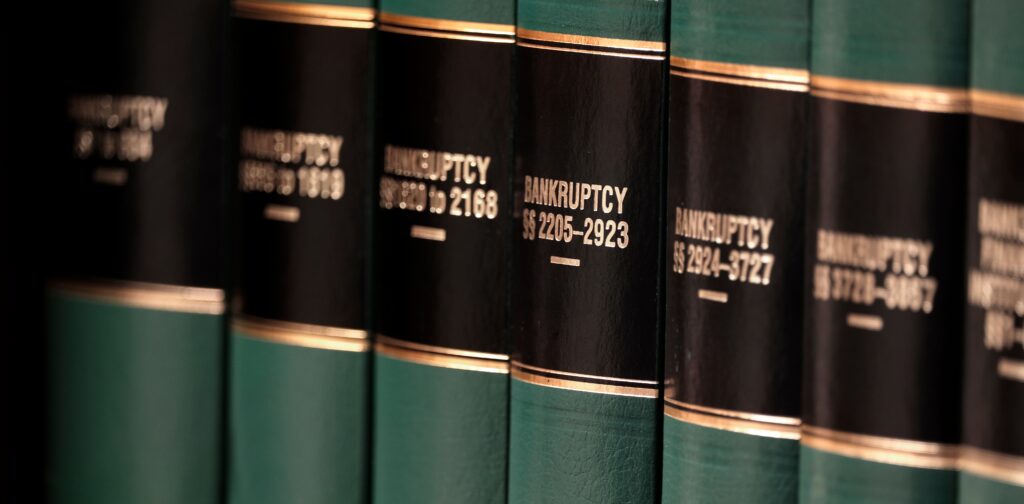
Exemption Law: A Core Concept in Bankruptcy
Talking to your friends and family who have filed bankruptcy can give you the impression that Chapter 7 bankruptcy is free of unpleasant consequences. To the contrary, paying your attorney, the court, and case expenses are not the only potential costs. Chapter 7 bankruptcy can result in the loss of significant property (i.e. real estate, vehicles, cash, personal items, etc.) even in a otherwise simple consumer case. However, adverse outcomes are usually avoided or mitigated with an attorney’s assistance.
The laws that protect your property from being lost in bankruptcy are called exemption laws. With some planning, they can be employed to minimize the loss of your property in Chapter 7 bankruptcy. These laws also indirectly impact Chapter 13 bankruptcy cases. Mr. Gregory can assist you in making best use of these laws to protect your property.
Exemptions: Chapter 7 Liquidation
Chapter 7 bankruptcy is intended to do more than simply give consumers relief from their debts. Bankruptcy laws place equal importance on fairness to creditors. Simply put, you are only allowed to retain a limited dollar value of property when you declare Chapter 7 bankruptcy, and this principle even affects Chapter 13 cases.
Your exemptions are laws stating the dollar value limits on property you may retain. Different dollar value limits apply to different classes of property. For instance, you have a specific exemption amount for your homestead equity and an entirely different one for intangible personal property like cash, bank deposits or sums of money owed to you. Presently, most individual Indiana bankruptcy filers can exempt $22,750.00 of homestead equity, but only $450.00 of ALL intangible personal property. The latter is a miserable allowance compared to many other U.S. jurisdictions. Indiana consumer lending lobbyists are happy with it, of course.
To the extent the value of your property exceeds applicable exemption dollar value limits, it is declared non-exempt and turned over to a Chapter 7 bankruptcy trustee who will reduce it to cash as necessary and distribute it to your creditors. This is called bankruptcy liquidation. It sounds unpleasant, doesn’t it? Well, it can be unpleasant, but in practice, represented persons should avoid it, and at the very least, not be surprised when it occurs.
Exemptions: Chapter 13 Repayment Plans
In Chapter 13 bankruptcy cases, the trustee’s goal is not to liquidate your non-exempt property. However, you must propose, and the Bankruptcy Court must approve, a repayment plan that (among other things) serves the best interest of your creditors. Ultimately, the value of your property and application of exemption law to it determines whether your Chapter 13 repayment plan meets this standard.
For your plan to serve the best interest of your creditors, it must pay your creditors what they would have received from your liquidation in Chapter 7 bankruptcy. Thus, to the extent your property is identified as non-exempt by the Chapter 13 trustee, it generates a minimum level of repayment for your Chapter 13 repayment plan. The determination of whether your plan provides this level of debt repayment is referred to as the liquidation test.
If you possess non-exempt property, Chapter 13 bankruptcy can be utilized to avoid the loss of your property in Chapter 7 bankruptcy. If you can afford a plan that will pay your creditors what they would have received in a Chapter 7 liquidation case, you can in effect buy back your non-exempt property in a Chapter 13 case. This is perhaps the ultimate fall-back position in what we call exemption planning.
Exemption Planning
The key to minimizing loss of your property in Chapter 7 bankruptcy or reducing the impact of your property on your Chapter 13 repayment plan, lies in exemption planning. As an experienced bankruptcy attorney, Mr. Gregory can help you plan to apply the exemption laws to minimize your non-exempt property, without exposing you to claims of bad faith, fraud, or other complications that would jeopardize your bankruptcy relief. This can be achieved with a variety of carefully considered and reasonable actions, and proper timing of your bankruptcy filing. On the other hand, trying to DIY exemption planning is probably one of the most serious risks of trying to represent yourself.
Exemption Law News: The latest regarding your exemptions is that the current inflationary state of our economy has prompted the state agency responsible for adjusting bankruptcy exemption amounts to issue an emergency regulation increasing their dollar values as of March 1, 2022. The bad news is that the increases were only slight, and already overdue. This comes as no surprise to most Indiana bankruptcy professionals representing consumers.